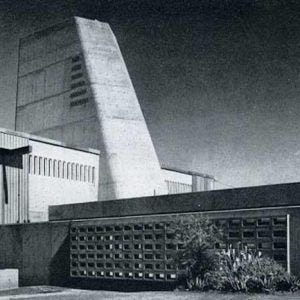 France’s EDF and 14 other companies and trade unions have announced proposals for a clean energy hub to be built in Cumbria in the UK, including a new large nuclear power plant.
France’s EDF and 14 other companies and trade unions have announced proposals for a clean energy hub to be built in Cumbria in the UK, including a new large nuclear power plant.
Earlier plans to build a nuclear plant at the Moorside site collapsed in 2018 when Japan’s Toshiba pulled out of the project after its Westinghouse subsidiary filed for bankruptcy.
The Moorside Clean Energy Hub group said the proposals include a 3200MWe EPR nuclear plant, similar to Hinkley Point C EDF is building with China’s CGN. The group is also considering other nuclear technology such as small modular reactors (SMRs), and advanced modular reactors (AMRs), which could be linked with renewables, storage and hydrogen production to create an integrated clean energy hub in the north west region.
“The Hub hopes to capitalise on the region’s existing nuclear supply chain and could boost orders for hundreds of companies and create thousands of jobs,” the group said in a statement. It added that the hub is being promoted by its members and will eventually be "majority owned by institutional investors".
Other members of the hub include Altrad, Atkins, Balfour Beatty Bailey, Bilfinger, Cavendish Nuclear, Doosan Babcock, Jacobs, Laing O’Rourke, Mace, Mott MacDonald, Quod and the GMB, Prospect and Unite trade unions, as well as Professor John Fyfe (an economic development specialist).
Cavendish Nuclear said it is pleased to confirm its support to promoting a Clean Energy Hub based at Moorside in Cumbria.
“Nuclear has a vital role in delivering net zero by 2050 and we are passionate about the role we play in that. Through our support to the existing reactors, the construction of Hinkley Point C and helping to develop advanced nuclear technologies for the future, clean energy is a core focus for our business. We look forward to being able to share our expertise and to support the promotion of a Clean Energy Hub in the North West.”
Cavendish said co-locating future technologies alongside UK EPR technology will bring together a range of skills, experience and industry knowledge at one site. “This will enable a project to start quickly and help to bring forward the development of SMRs and AMRs.”
The Moorside Hub has launched a brochure outlining some of its proposals. It has also been seeking advice from the Cumbria Local Enterprise Partnership, Copeland Council, and Britain’s Energy Coast Business Cluster to develop the plans. The Hub will explore ways of providing clean heat to industry and could also become a centre for producing hydrogen to be used as green fuel for local transport and industrial processes.
Trudy Harrison, Member of Parliament for Copeland welcomed “the engagement of the nuclear supply chain at this critical stage”.
Ivan Baldwin, Chair of Britain’s Energy Coast Business Cluster said: ”We look forward to continuing collaborative discussions with the Moorside Consortium which complement regional ambitions to establish a Clean Energy Hub. As with all inward investment discussions, our focus remains on maximising local business opportunities, job creation and establishing long term green collar career paths for our younger generation.”
Councillor David Moore, Nuclear Portfolio Holder for Copeland Borough Council said: “We firmly believe that nuclear technologies have a key role to play in our clean energy future and our communities have a long history of pioneering clean energy technologies. The proposal for the provision of a Moorside Clean Energy Hub and industrial cluster aligns closely with the vision set out in the Cumbria Nuclear Prospectus is fantastic news for the locality.”
A joint statement from the three unions said: “The opportunity to secure a new generation of nuclear jobs in the North West of England has been on hold for too long. Rapid development of this clean energy hub can play an essential part in rebuilding our economy after coronavirus and cutting carbon emissions to deal with the climate crisis. If the government is serious about levelling up, it will get right behind this plan, as part of a bigger commitment to new build nuclear.”
Unite regional secretary for the north-west Ritchie James commented: “The fact that this consortium is looking beyond tomorrow and into a low carbon future is good news, given that there could be a post-pandemic 25,000 jobs bonanza across the region if this takes off.”
Unite assistant general secretary Gail Cartmail said: “Business secretary Alok Sharma needs to provide the financial support and political clout for ‘new nuclear’ as part of the much-heralded ‘levelling up’ strategy that has been repeatedly promised.”
She added: “We continue to urge the government to articulate its long-term commitment to a new era for nuclear power where it plays a vital role in the energy ‘mix’ – without this commitment, it is difficult to see how the UK can meet its ‘net zero’ pledge by 2050.”
The UK Nuclear Industry Association (NIA) also welcomed the Moorside announcement. The association's CEO Tom Greatrex, said: “Large scale and smaller, next generation technologies have a huge amount to offer working as part of the clean energy hub concept. They can deliver clean electricity and achieve deeper decarbonisation through the creation of hydrogen, clean fuels and district and industrial heating.”
Moorside, adjacent to the Sellafield site, was selected by the NuGeneration (NuGen) consortium to build a nuclear plant using Westinghouse AP1000 reactor technology. Toshiba (sole owner of NuGen) withdrew from the project in November 2018 and NuGen was wound up. However, the site itself, which NuGen bought from the UK Nuclear Decommissioning Authority in 2009, is still designated for nuclear new build.






